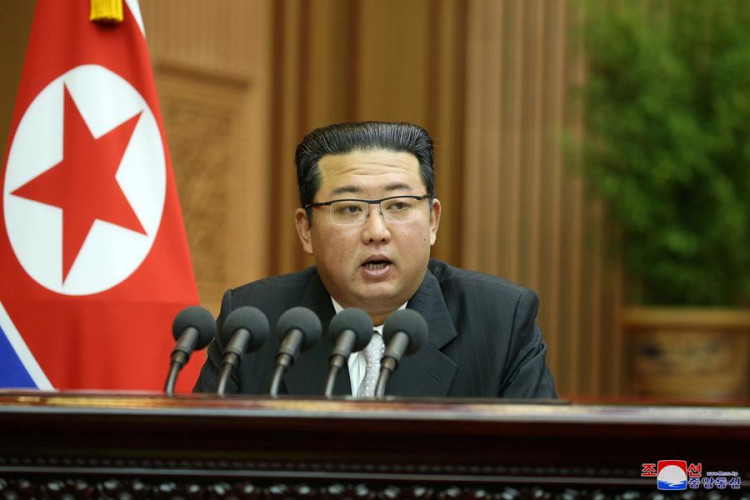North Korean leader Kim Jong Un has ordered the military to stabilize COVID-19 pharmaceutical distribution in the capital, Pyongyang, in the fight against the country's first proven outbreak of the disease, according to state media.
Last Monday, the North acknowledged an "explosive" outbreak for the first time, with experts warning that it may devastate a country with scant medical supplies and no immunization program.
Kim told an urgent politburo meeting on Sunday, before visiting pharmacies along the capital's Taedong River, that drugs acquired by the government were not reaching people in a timely and efficient manner.
Kim also directed the army's medical corporations to mobilize "strong forces" immediately to "stabilize the supply of medications in Pyongyang City," according to the report.
Even though the government had authorized the distribution of national pharmaceutical stockpiles, pharmacies were not well-equipped to carry out their duties, according to the agency.
The lack of suitable drug storage outside of exhibits was one of their problems, according to the boss, while salespeople lacked proper sanitary clothes and hygiene in their settings fell short of expectations.
He reprimanded the cabinet and the public health sector for their "irresponsible" work style, organization, and execution, according to the report.
President Yoon Suk-yeol told parliament on Monday that South Korea would go to whatever length to assist the North in combating the outbreak, and that it was ready to deliver COVID-19 vaccinations and other medical assistance if Pyongyang agreed.
Seoul's unification ministry, which is in charge of ties with its neighbors, said it would present a plan of assistance to the North soon.
By Sunday, North Korea's virus toll had risen to 1,213,550, with 50 deaths, and as per reports, 392,920 new instances of fever and eight more deaths. It did not specify how many cases have tested positive for COVID-19.
Because of a lack of information about the Omicron strain of coronavirus and how to treat it, the North has attributed a large number of deaths to those who were "careless in taking medications."
The assertion that North Korea had kept the virus at bay for two and a half years was widely questioned. However, it is possible that the country's rigorous border closures, large-scale quarantines, and propaganda emphasizing antivirus regulations as a matter of "national existence" have averted a massive breakout until now.
North Korea's urgent messaging about the infection is unclear if it reflects an openness to accept outside assistance.




